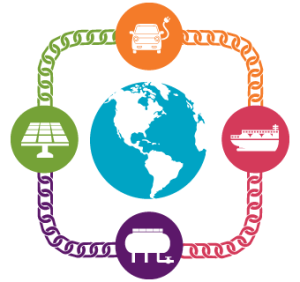K&L Gates Blockchain Energizer – Volume 8
By Molly Suda, Buck B. Endemann, and Ben Tejblum
 There is a lot of buzz around blockchain technology and its potential to revolutionize a wide range of industries from finance and healthcare to real estate and supply chain management. Reports estimate that over $1.4 billion was invested in blockchain startups in 2016 alone, and many institutions and companies are forming partnerships to explore how blockchain ledgers and smart contracts can be deployed to manage and share data, create transactional efficiencies, and reduce costs.
There is a lot of buzz around blockchain technology and its potential to revolutionize a wide range of industries from finance and healthcare to real estate and supply chain management. Reports estimate that over $1.4 billion was invested in blockchain startups in 2016 alone, and many institutions and companies are forming partnerships to explore how blockchain ledgers and smart contracts can be deployed to manage and share data, create transactional efficiencies, and reduce costs.
While virtual currencies and blockchain technology in the financial services industry have been the subject of significant debate and discussion, blockchain applications that could transform the energy industry have received comparatively less attention. Every other week, the K&L Gates’ Blockchain Energizer will highlight emerging issues or stories relating to the use of blockchain technology in the energy space.
IN THIS ISSUE
- Investment in Energy Blockchain Applications is Heating Up
- New Forms of Consensus Being Developed to Meet the Needs of Business Blockchains
- Blockchain Being Deployed to Optimize Shipping Container Management
To view more information on theses topics in Volume 8 of the Blockchain Energizer, click here.

